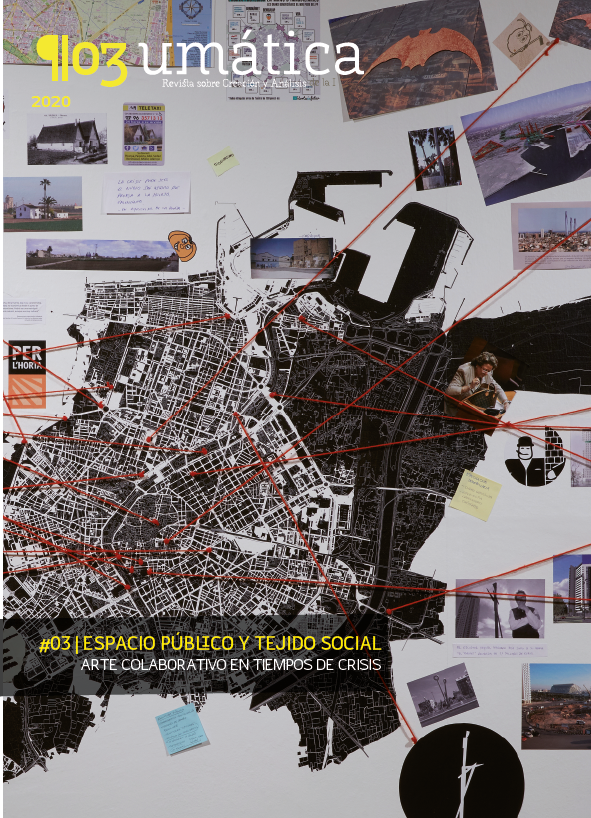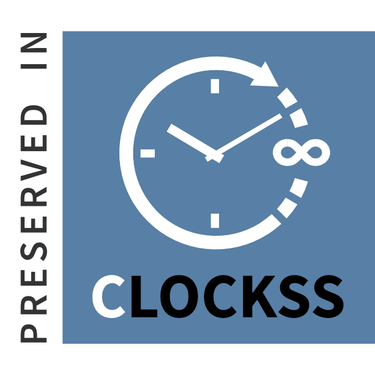No. 3 (2020): Public Space and Social Fabric: Collaborative Art in times of Crisis

Umática´`'s editorial team and the Research Project “Neighbourhoods as the Right Stage for Critical Pedagogy and Collaborative Art”(PGC2018-094351-B-C4, Ministerio de Economía y Competitividad) invite researchers and artists to revise the theoretical, methodological and practical clues associated to the collaborative and participatory politics in art administration and creation that the 2008 economic crisis put into motion as a tool to enhance values connected to “neighbourhoods”. Rogelio López-Cuenca's contribution to the cover of this issue is not only an honour for the editors, but also a declaration of intent about the horizon towards which these revisions are moving. The image corresponds to the installation Mapa de Valencia (2015) [1]. An installation that documents the work of the collective involved in the No/W/Here workshop, coordinated by López-Cuenca and with the collaboration of IVAM and UPV [2], it gives an account of a paradigm shift in which the impact of artistic intervention is glimpsed in those places that our capitalised environment leaves uncovered.
With a solid background during the last decades, the models defining this collective art practice outline today, in full COVID-19 sanitary and economic crisis, our possibilities of artistic or cultural response.
Particularly after 2008 economic crisis’ main impact, different demands claim for a rethinking of the relationship between art and its audiences, from art administration models to art practices conscious of the different contexts they inhabit. From that moment the debate focuses in culture and art’s contextual relation from a social perspective, leaving aside the classical culture-economy binomial administrative scheme. Despite the emergency status of these socially conscious models –they were mostly applied not as a full-programmed plan but as a necessary answer to the scarcity of means-, their lingering presence throughout this time and their challenge to traditional models seem to indicate a change of paradigm.
The 2008 economic crisis manifested many museums and art centres’ inability to rethink their politics but at the same time, with citizens’ urgent demands of transparency, it made them launch a process of new publics catching and visualization of their activities. The situation implied an attention to their closest neighbourhoods, with publics not just entering the institution but also participating in an active dialogue with them. Thus, collaborative art practice models that had emerged as an answer to the need of returning art and culture to a increasingly conscious society of its ownership, transformed art production in a collective matter that implied pedagogy as a necessary ally. Thence, following ideals subscribed by critical and/or radical pedagogies, art can be confirmed as a collective and responsible learning and negotiation process, whose horizon is never more identified with individual development but with social change as such. COVID19 sanitary crisis, and its domestic, social and economic implications pose a major challenge: to rethink our social actions in a confinement status, to define them in virtual sceneries, or to plan them for smaller citizenship groups in a moment in which art and its interactive production and consumptionmay become necessary or a saviour table for the difficult times we are living and unescapably for those to come.
Editors: Isabel Tejeda Martín (Universidad de Murcia) & Ignacio López Moreno (Universidad de Granada)
Cover Image: Rogelio López C., Mapa de Valencia (2015). Fotografía de la Instalación/versión de 2019 en el MNCARS (Madrid). | © Rogelio López Cuenca.
[1]Rogelio López C., Map of Valencia (2015). Photograph of the 2019 installation/version at MNCARS (Madrid). | © Rogelio López Cuenca.
[2]Collaborators in the project are the No/W/Here Valencia workshop team (IVAM and UPV Faculty of Fine Arts, Valencia 2015): Judith Álvarez García, María Aucejo, Silvia García, Luis Lisbona, Neus Lozano-Sanfélix, Raúl Ortega Moral, Mª Jesús Parada, Raquel Planas, Maritxel Quevedo, Chiara Sgaramella, Natividad Soriano, Vanesa Valero y María Vidagany-Murgí. | Video editing: Elo Vega.


23.png)






